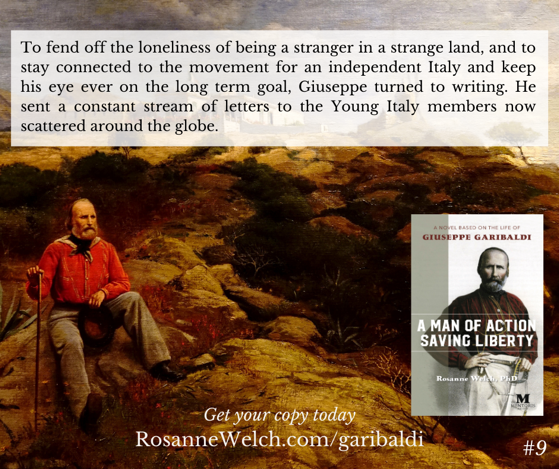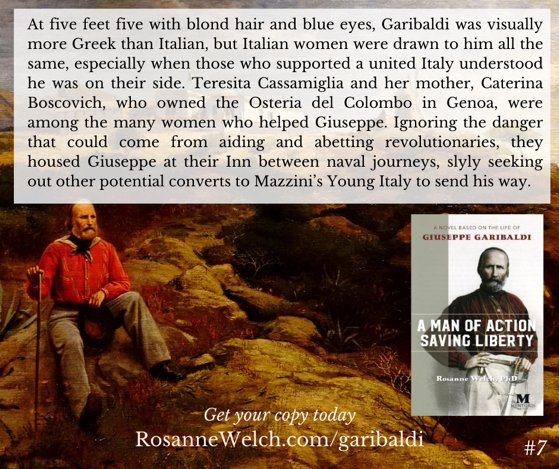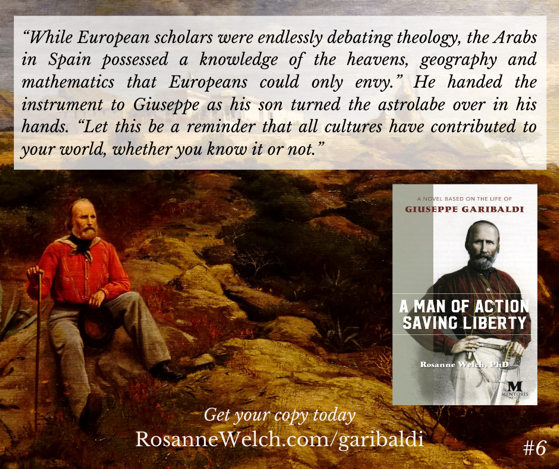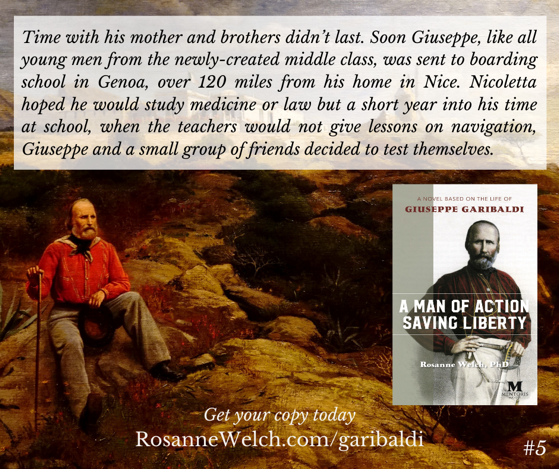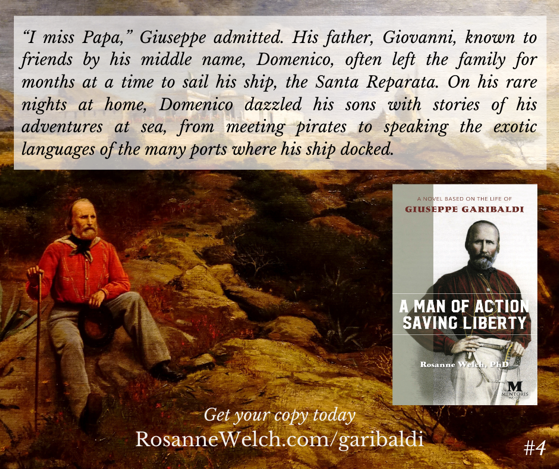It’s always nice to read a positive review of a newly published book so when the Kirkus Review of my new book on the life of Giuseppe Garibaldi said it was “A wonderfully researched and dramatically gripping work of historical fiction” I smiled.
Research IS my middle name these days and ‘gripping’ is what’s needed for the pace when one is documenting such an epic life so that it doesn’t feel like it is just meandering from battle to battle with no story growth.
The book gave me the chance to finally delve deeply into Garibaldi and Anita’s lives and come to a deeper understanding of the revolution that united Italy. — Rosanne
“A novelistic biography of the 19th-century Italian general who devoted his life to the unification of Italy.
Giuseppe Garibaldi was raised in Nice, an Italian territory in Piedmont held by the French. His mother nevertheless insisted, against convention, that he learn to read Italian and to zealously assert his independence. After an aborted attempt to follow in his father’s footsteps and become a sailor, Garibaldi joined the Young Italy movement under the direction of Giuseppe Mazzini and agitated for Italian independence. As a result, he was sentenced to death and was forced to flee to South America, an exile that lasted more than a decade.
While in Brazil, he discovered thousands of misplaced Italians, and he recruited them to participate in the Ragamuffin War to establish a republican experience that prepared him for the wars of independence in Italy later. Also, he fought in the Uruguayan civil war before finally returning to Italy intoxicated by the dream of Italian independence and unification—a devotion stirringly portrayed by Welch.
He formed a group of volunteers, called the Hunters of the Alps, to fight in the Second Italian War for Independence and later participated in the Expedition of the Thousand in Sicily, successfully establishing Victor Emmanuel II as king.
Welch’sresearch is impeccably rigorous. She captures the minute details of Garibaldi’s life, the machinations of military strategy of the period, and the atmosphere of both 19th-century Italy and South America. One could quibble that the accumulating, granular detail finally becomes daunting to digest. However, her prose is reliably lucid and sometimes achieves genuine poignancy, particularly in the representation of Garibaldi’s indefatigable fervor: “Italy will not truly exist as a nation until her flag, symbolizing the unity and freedom of the former Roman Empire, flies from the Capitol in Rome.
”A wonderfully researched and dramatically gripping work of historical fiction.” – Kirkus Reviews

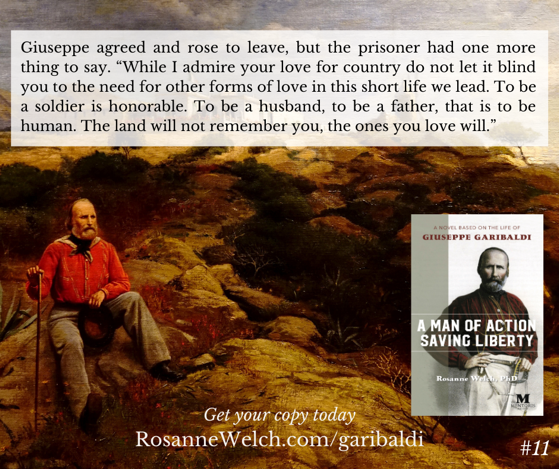
![Mentoris Project Podcast: A Man Of Action Saving Liberty: A Novel Based On The Life Of Giuseppe Garibaldi with Author, Dr. Rosanne Welch [Audio]](https://rosannewelch.com/wp-content/uploads/2020/11/mentoris-rmw.png)














